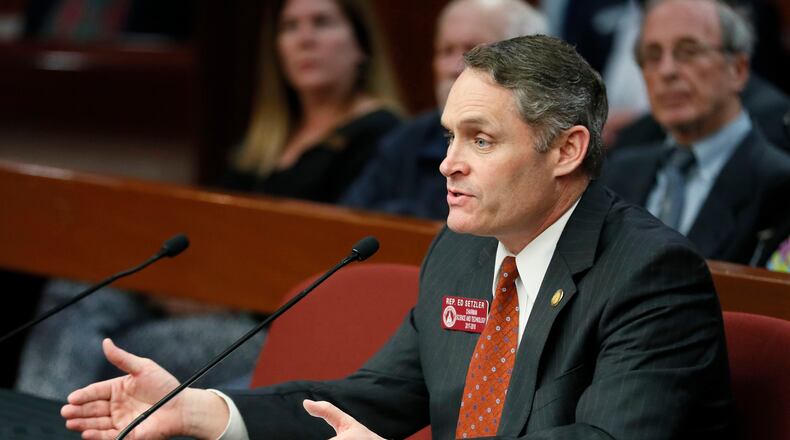What to do about Georgia's thousands of poor adults without health coverage sparked a wave of debate Friday, one day after Gov. Brian Kemp was quoted in The Atlanta Journal-Constitution embarking on plans to address it.
Democrats decried Kemp’s plan to spend $1 million on researching and developing a more conservative Georgia plan for Medicaid.
Republicans came back with a range of criticism. Some took aim at the expansive plan that Democrats support. Others seemed to question any plan at all.
"I do think there's more we can do through innovative solutions," said House Speaker Pro Tem Jan Jones, a Republican from Milton. However, she cautioned, "Look very carefully until we add an entirely new entitlement program that doesn't really look at the long-term financial implications."
Kemp’s team met with the AJC on Thursday to outline a path for dealing with Georgia’s poor and middle-class residents who struggle with access to medical coverage. The biggest issue concerns some 300,000 to 600,000 childless Georgia adults who fall in the “Medicaid gap,” too poor to receive Obamacare subsidies and without health insurance. The Affordable Care Act, also known as Obamacare, assumed states would expand Medicaid to cover them; Georgia did not. The state auditor estimates that covering them could cost Georgia between $139 million and $213 million a year, with the federal government matching the state spending at a 9-to-1 ratio.
For conservative states, though, there's another path, called a "waiver." Those states can ask the federal government to waive certain rules of Medicaid to tailor a program in their own way. One waiver option Georgia GOP leaders have floated is a work requirement. Kemp's advisers said their consultants will look at all options, except for straight expansion.
The idea of Medicaid expansion is supported by more than 70 percent of Georgians, according to AJC polls over the years. And Democrats have used that “Medicaid gap” as a cudgel in elections. In her 2018 run for governor, Stacey Abrams got traction calling over and over for Medicaid expansion.
In a tweet after the floor session Friday, Abrams' successor in House District 89, state Rep. Bee Nguyen, echoed Abrams, taking aim at the consultant effort.
“I voted against the (state budget continuation bill, which contains the consultant fee) because we don’t need to spend $1 million of Georgia taxpayer dollars + $1 million of federal tax dollars on an external Medicaid waiver consultant,” she wrote. “We can listen to Georgians & expand Medicaid now for 500,000 of our constituents.”
Her fellow Democrat, Minority Leader Bob Trammell waved a financial analysis of the Democrats' bill proposing to simply expand Medicaid, House Bill 37. The economic benefits of simple expansion outweighed any benefit of going through tailoring a Georgia-specific waiver, he said, a process that would burn time and money.
“We’re contemplating hiring someone to fill out a waiver and go through a process to see who we could cover and how we could construct it, but Medicaid is an existing program,” he said. “Expanding Medicaid is a sure, certain way to cover over a half-million Georgians. It’s the fastest way to provide relief for people who don’t have insurance who could be covered under Medicaid expansion.”
Republican state Rep. Ed Setzler of Acworth questioned Trammel on the floor and said he needed to clarify that Medicaid expansion wouldn't fund care for children, just working-age adults.
In an interview afterward, Setzler said he doesn’t oppose expansion of the medical benefit, but it should be strategic, as Kemp seems to be contemplating: not a handout.
“I think making it easier for people and creating perverse incentives for people to take a free benefit, as opposed to working for better benefits and a higher paying job, is moving in the wrong direction,” he said. “I think we want to create incentives for able-bodied adults to be as productive as they possibly can be and contribute as much as they possibly can. Creating conditions in which people who are employed want to stay employed is important.”
The Latest
Featured




